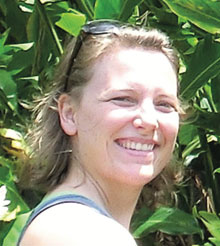Novel method reveals new knowledge about G1-phase
Novel method reveals new knowledge about G1-phase 
A recent collaborative study from the Department of Radiation Biology (HÄland, Boye, Stokke, Grallert, SyljuÄsen) describes a novel method to simultaneously measure MCM loading and passage through the RB1-dependent restriction point in single cells. The method is based on the fact that both MCMs and RB1 are anchored in the cell in a cell-cycle-dependent manner. Passage through the restriction point (i.e. RB1 anchoring status) and MCM loading are measured simultaneously by antibody staining and flow cytometry following extraction of unbound proteins
The findings of the study challenge the classic model of G1 progression. According to this model passage through the restriction point leads to activation of the E2F transcription factor and induction of transcripts required for S-phase entry, including those required for MCM loading. Unexpectedly, using the novel method HĂ„land et al find that MCM loading occurs before the restriction point in a sizeable fraction of exponentially growing human cells, implying that the release of E2F from RB1 complexes and E2F-driven transcription is not essential for MCM loading. The results are published in Nucleic Acids Research (IF 9.1).
Links:
Simultaneous measurement of passage through the restriction point and MCM loading in single cells
T. W. Haland; E. Boye; T. Stokke; B. Grallert; R. G. Syljuasen
Nucleic Acids Research 2015;Â doi: 10.1093/nar/gkv744
Abstract - Full text - PDF
